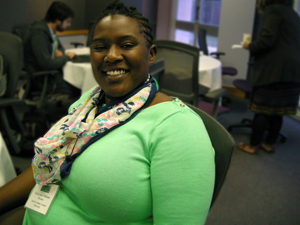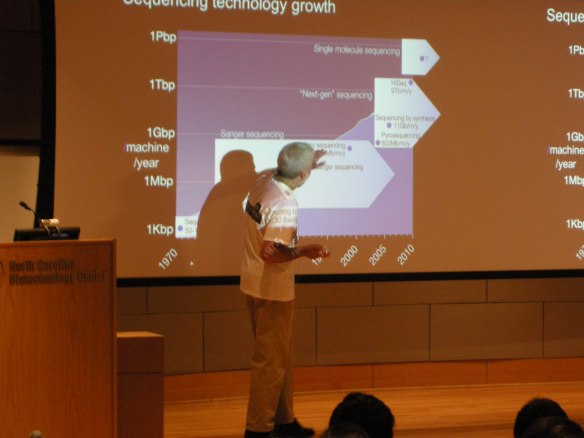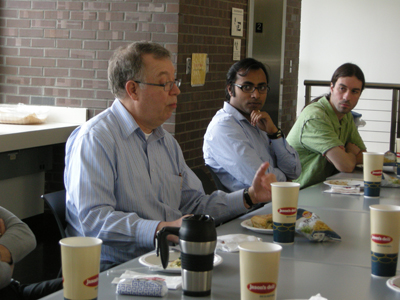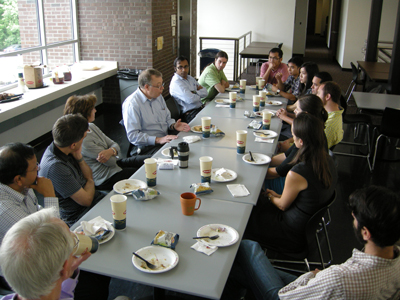The following blog entry was written by ClarLynda Williams-DeVane, Assistant Professor Bioinformatics/Biostatistics, Department of Biology and Director of Bioinformatics Genomics and Computational Chemistry Core (BGCCC) at the Biotechnology Biomedical Research Institute (BBRI), North Carolina Central University; Building Interdisciplinary Careers in Women’s Health (BIRCWH) Duke University.
Two weeks ago I participated in SAMSI’s Opening Workshop for the 2014-15 Program on Beyond Bioinformatics: Statistical and Mathematical Challenges. I was particularly interested in participating in this program because of the focus on data integration and large-scale data methodology. The focus of my research is in large-scale data integration for complex women’s diseases. As an assistant professor at a smaller university, it was an amazing opportunity to spend a week thinking about and discussing current and developing methodology in my research area. The discussion of exploratory data analysis (eda) methods in comparison or compliment to Bayesian model based methods was insightful and of great benefit as I have these discussions often with my K-award mentorship team. The thought leaders in these areas all made very well defined and supported arguments about which methodology was best given specific research questions.
Throughout the meeting, it was difficult for most speakers and attendees to define what it means to move beyond Bioinformatics. Many of the speakers and discussions following the speakers exemplified moving beyond bioinformatics while discussing how to move from exploratory data analysis methods to more model based analysis methods, which defines for me the need to move beyond bioinformatics. I appreciate the focus on mathematical and statistical approaches to problems. As a junior faculty member, the discussion about publishing in this area and developing clinically relevant methodologies was very helpful. At the end of the workshop as we broke into working groups, we continued our discussions of data integration. The working group process was a bit overwhelming attempting to find the appropriate fit. Through the various discussions on data integration, it was possible to find a working group that complimented my current research and to which I could be a major contributor. I am eagerly anticipating the next face-to-face meeting of my working group and seeing the outcome of the other working groups.







